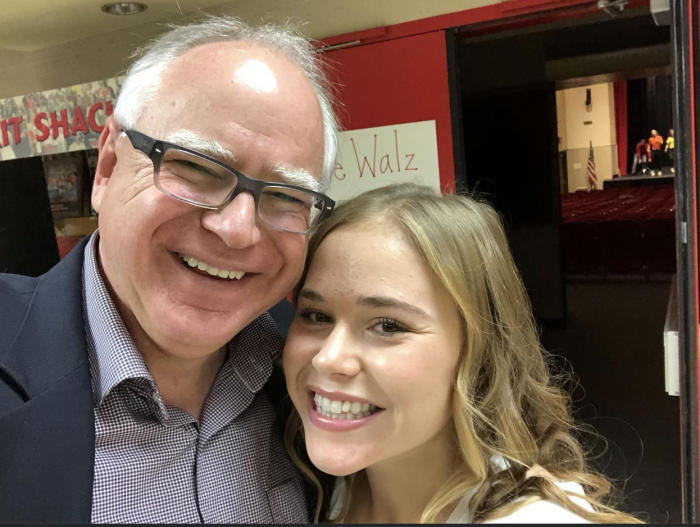By Dustin Rowles | Social Media | August 6, 2024

We often like to argue that Twitter/social media/the Internet isn’t real, and when it comes to elections, that’s probably true. The Internet is a vocal minority — it’s very loud, but its actual voting power is limited. It’s why, for instance, I wasn’t that worried that Josh Shapiro — had Kamala Harris chosen him as her running mate — would cost Harris a lot of votes. It’s not just that the so-called “online left” — a catchall term that includes progressives of various stripes — is relatively small; it’s that they are concentrated in states where the outcome of a presidential election is not in doubt. Progressives aren’t going to vote for Trump, and the (very) few who might sit out the election over Gaza, for instance, are mostly young voters — the least likely to vote — and probably live in deep blue states.
And yet, I had literal nightmares every night this weekend that Harris would choose Shapiro. That fear felt existential. Don’t get me wrong: I like Shapiro. A lot. I was very excited about the prospect of a Jewish Vice President. But the Internet, for various reasons — some based in reality, some based in toxic misinformation — had turned on Shapiro, and that had been reflected on social media and even in our comment sections.
Again, that’s not real, but what is real are the narratives that the Internet creates. You know what’s even better than the endorsement from someone like Taylor Swift, the most popular musician in America? Being beloved on the Internet. For weeks, the popular wisdom was that Kamala Harris was less popular than Joe Biden and would fare even worse against Donald Trump. Within hours, the Internet decided that it loved Kamala Harris, and that love (including a tweet from Charli XCX) created narratives that real America could latch onto.
Three hundred million dollars in political ads aired strategically in the swing states cannot buy the amount of publicity the Internet can provide. People keep talking about how the Trump campaign is trying to define Kamala Harris before she can. The Internet has done a lot of that work defining Harris: She’s fucking Brat, whatever that means.
You know who else got defined by the Internet? Good old couch f**ker over here. The Democrats didn’t have to do shit except sit back and let the Internet ruin JD Vance, who is now the least popular VP pick ever. The Harris campaign didn’t do that. The Internet did that.
And that was the fear I had of Harris choosing Shapiro: That the Internet would define him — fairly or not — before either the Harris campaign or the Trump campaign could. It took one tweet and a very receptive Internet to turn JD Vance into a guy who has sex with a couch. I was dreading what the Internet might do to Shapiro.
Meanwhile, the Internet quickly figured out and defined Walz. The Republicans and even cable news have been trying to define Walz as this dangerous progressive liberal, but the Internet has already defined him as a Midwestern Dad. And how can they argue with this?

There are half a dozen stories like this on the Internet.

So, no: The Internet is not real. But the messaging is, and the journalists who spend all day on it pick up on that messaging. It’s millions and millions and millions of dollars in free publicity and good vibes. And that’s exactly what Tim Walz brings to the ticket.